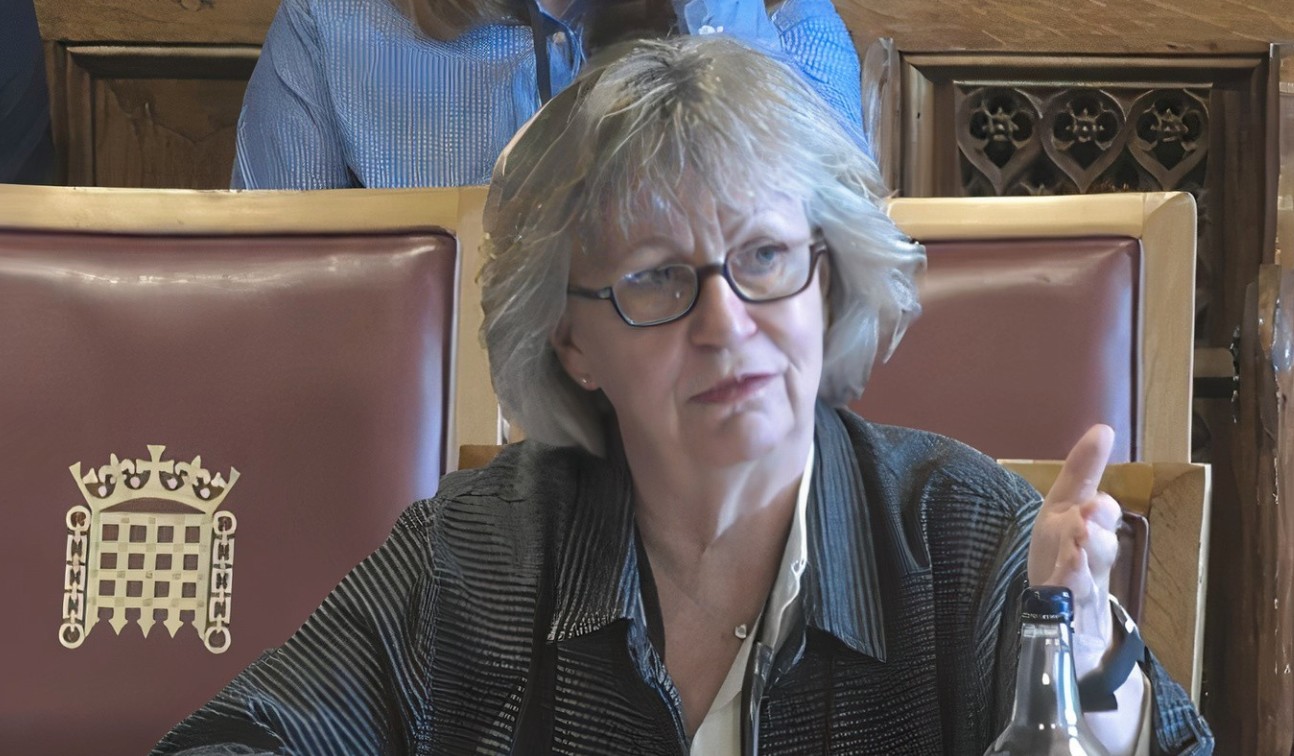Professor Maggie Dallman gives evidence to House of Lords Committee
by James Tooze

Earlier this month, Professor Dallman appeared in front of the House of Lords Science and Technology Committee to discuss the UK STEM skills pipeline.
The House of Lords Science and Technology Committee is a group of Peers from across the House of Lords who routinely gather information and evidence on scientific, technology and related policy issues, producing reports with their findings to the UK Government. This session looked at information and evidence for an inquiry focussed on people and skills in science, technology, engineering and medicine (STEM). The topics of the inquiry range from the attractiveness of the UK to international researchers, the practicalities of coming to the UK as a researcher and how the domestic pipeline of skills is developing.
Against the backdrop of the UK Government’s commitment to increase public investment in research and development (R&D) to £22bn by 2027/28, it is estimated that the UK will need 150,000 more researchers to meet the UK’s ambitions to strengthen R&D. Chair of the Committee, Baroness Brown of Cambridge, asked Professor Dallman about the challenges currently facing researchers considering moving to the UK and the attractiveness of the UK as a destination for international researchers.

Professor Dallman outlined that the UK was currently in a difficult position where the messaging about wanting to attract talented people with STEM skills from across the world seemed to not be well understood. She also noted the decline in the numbers of applicants from prospective students from the European Economic Area (EEA) across UK universities, largely attributed to the change in fee status. Imperial has committed to funding a greater number of scholarships for international students to enable a greater number of students from a greater diversity of countries to come to undertake their studies here.
Professor Dallman highlighted the importance of the entire UK research ecosystem needing to be supported and functioning well to secure the UK’s place as a science and technology power. Also giving evidence on the panel, UK Research and Innovation (UKRI) Chief Executive Dame Ottoline Leyser reiterated Professor Dallman’s point that the strength of UK science depends on a number of factors including long-term funding, enabling international partnerships and promoting the full range of career paths in research.
Challenges facing the UK’s attractiveness
Professor Dallman talked about the increasingly competitive offers from other countries that means it may become more difficult to attract researchers to the UK. Dame Ottoline also warned that the UK not to become complacent with the offers to talented international researchers and should endeavour to talk loudly and clearly about the strength of the UK research environment.
“Providing the money can be sorted out, that loss of influence of UK-based scientists is going to be the biggest tragedy.” Professor Dallman discussing issues of failing to associate with Horizon Europe
Another issue having an impact on the UK’s attractiveness to international researchers is the uncertainty over the future of the UK’s association and participation in the European Union’s flagship research funding programme, Horizon Europe. Professor Dallman outlined that full association to Horizon Europe is the best outcome for the UK and for researchers, which was echoed by the other panel members. Full association would mean retaining access to prestigious grant funding such as the European Research Council and Marie Sklodowska-Curie Actions and ensure that UK-based researchers are given the ability to lead and influence research in such large programmes.
The panel of witnesses also discussed the challenges associated with the costs for individuals to come to the UK to work. Despite welcome changes to the immigration system in recent years, particularly in the introduction of the Global Talent visa and the extension of the post-study work visa for international students, the costs of entering the UK to work are significantly higher than those of any other leading scientific nation. These costs are something that individuals and their families are required to pay upfront and this measure was not helping with successfully attracting individuals or presenting the UK as a welcoming place to come to work.
The Committee will continue to take evidence from a wide range of witnesses on these issues before publishing a report. Imperial has also submitted written evidence to the Committee.
Article text (excluding photos or graphics) © Imperial College London.
Photos and graphics subject to third party copyright used with permission or © Imperial College London.
Reporter
James Tooze
College Headquarters